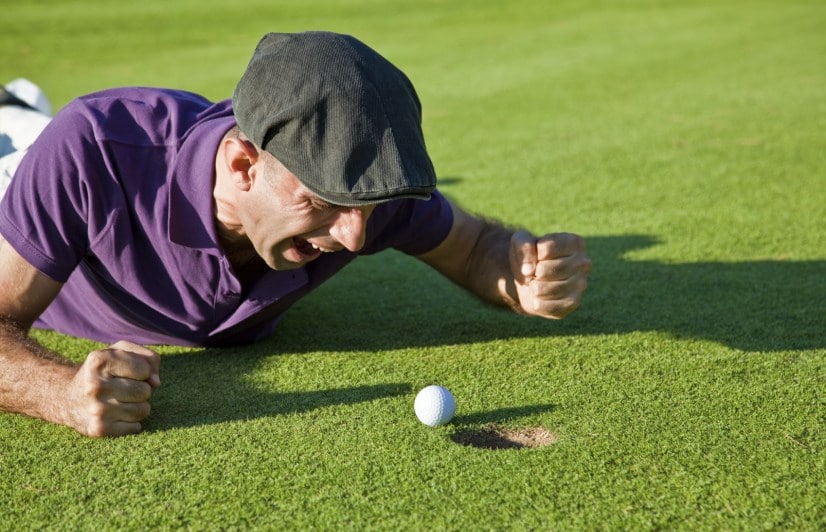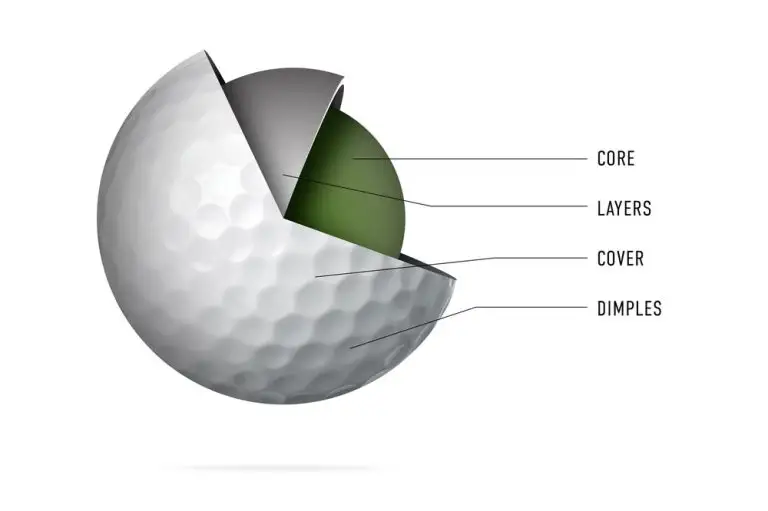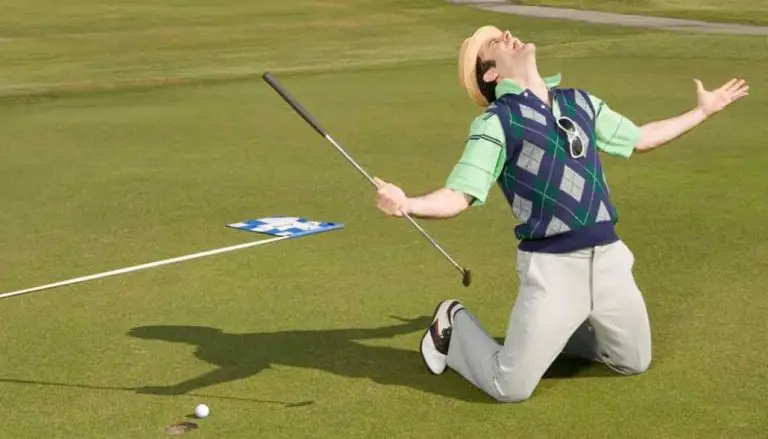Is Golf The Hardest Sport
Golf, a sport renowned for its precision, skill mastery, and mental fortitude, has long sparked debates about its level of difficulty. Many athletes and enthusiasts have pondered the question: Is golf the hardest sport? While some may argue that sports like football or gymnastics require more physical prowess, golf presents a unique set of challenges that make it a contender for the title of the hardest sport.
At first glance, golf may seem deceptively simple—a leisurely stroll on a well-manicured course, striking a stationary ball. However, beneath its serene facade lies a game that tests both the body and mind in ways unlike any other sport. Golf demands a delicate balance of physical prowess, mental acuity, and strategic finesse.
From the precision and complexity of the golf swing to the endurance required to complete a round, golfers must possess a wide range of skills. Mental resilience is crucial to overcome the inevitable setbacks and maintain focus throughout the entire game. Additionally, golfers must master the art of adapting to different course conditions, making split-second decisions, and executing shots with unwavering accuracy.
In this article, we will delve deep into the physical demands, mental challenges, and skill mastery that define golf. By exploring its intricacies and comparing it to other sports, we aim to shed light on whether golf truly deserves the reputation as the hardest sport. So, fasten your seatbelts and prepare for a captivating journey through the world of golf’s challenges and triumphs.

Physical Demands of Golf
Golf Swing Mechanics:
The golf swing is the foundation of the game, and it demands a high level of complexity and precision. Every aspect of the swing, from grip to stance to follow-through, must be executed with utmost accuracy. The golfer must synchronize multiple moving parts, including the arms, torso, and lower body, to deliver a consistent and powerful swing.
Stamina and Endurance:
While golf may not appear as physically demanding as some other sports, it requires considerable stamina and endurance. A typical round of golf involves walking several miles, sometimes in challenging terrain. This physical aspect can be especially demanding during multi-day tournaments, where golfers must maintain their energy levels and focus throughout.
Physical Fitness Requirements:
Contrary to popular belief, golfers need to be in good physical condition to excel in the sport. Flexibility, core strength, and balance play crucial roles in executing a consistent and powerful swing. Golfers who prioritize physical fitness can gain an advantage by increasing their range of motion, stability, and overall performance.
Mental Challenges in Golf
Focus and Concentration:
Golf is often described as a mental game, and for good reason. Maintaining focus and concentration for several hours on the golf course is a significant challenge. External distractions, such as noise from the gallery or adverse weather conditions, can test a golfer’s ability to stay mentally engaged and execute each shot with precision.
Strategic Thinking and Decision Making:
Golf is not just about hitting the ball; it also requires strategic thinking and decision making. Golfers must assess various factors such as wind direction, course conditions, and their own strengths and weaknesses to choose the right shots. The ability to adapt and adjust strategies based on the ever-changing circumstances adds another layer of complexity to the sport.
Mental Resilience:
In golf, one bad shot or a series of poor holes can quickly erode confidence. Mental resilience is crucial in overcoming setbacks and maintaining composure throughout a round or a tournament. Managing emotions, staying positive, and focusing on the next shot rather than dwelling on past mistakes are essential skills for success in golf.
Skill Mastery in Golf
Precision and Accuracy:
Golf demands a high level of precision and accuracy. Hitting the ball with consistency and accuracy is vital to navigate the course successfully. Each shot requires careful calculation of distance, trajectory, and ball placement to avoid hazards and reach the target. Mastering the art of consistently striking the ball with precision is a lifelong pursuit for many golfers.
Short Game Expertise:
While the full swing attracts much attention, the short game is equally important in golf. Putting, chipping, and pitching skills around the greens can make or break a golfer’s score. Developing touch, feel, and the ability to judge distance accurately in these delicate shots is critical for lower scores.
Adaptability to Various Course Conditions:
Golf is played on a wide variety of courses, each with its unique characteristics. Golfers must adapt their game to different grass types, weather conditions, and course designs. A versatile skill set that can handle various challenges allows golfers to perform consistently in different playing environments.
Comparing Golf to Other Sports
Complexity and Technicality
Golf vs. Baseball:
Although golf and baseball are fundamentally different, both sports require precise hand-eye coordination and technical skill. While baseball involves hitting the ball thrown by a pitcher, golf requires hitting a stationary ball with a club. The complexity lies in the precision required in both sports. In golf, the golfer must carefully calculate distance, adjust for wind and slope, and strike the ball with accuracy. Similarly, in baseball, the batter needs to time their swing correctly to make contact with the ball and direct it to the desired location on the field. Both sports demand a high level of technicality and precision, making it challenging to excel in either.
Golf vs. Tennis:
When comparing golf to tennis, we can observe distinct differences in the challenges they present. While golf requires hitting a stationary ball over long distances, tennis involves reacting to a moving ball and returning it with precision. Tennis demands quick reflexes, agility, and hand-eye coordination, as players must anticipate and respond to their opponent’s shots. Golf, on the other hand, emphasizes a controlled and consistent swing, precise shot placement, and strategic decision-making. The technical skills required in both sports differ, making it difficult to determine which is harder overall.
Golf vs. Basketball:
Golf and basketball are vastly different in terms of physical demands and skill sets. Basketball is a fast-paced, high-energy team sport that involves running, jumping, and rapid decision-making. It requires agility, endurance, and the ability to perform under pressure. Golf, on the other hand, is a more individualistic and methodical sport that prioritizes precision and accuracy. Golfers must exhibit fine motor skills, mental resilience, and strategic thinking. While both sports have their unique challenges, it is challenging to compare them directly due to their contrasting natures.
Physical Fitness and Endurance
Golf vs. Soccer:
Soccer, known for its continuous running, requires players to have exceptional cardiovascular fitness and endurance. The physical demands of soccer, including sprinting, changing directions, and duels for the ball, push players to their limits. In contrast, golf may not involve the same level of constant running, but it places emphasis on stamina and endurance. Golfers walk long distances during a round, often carrying or pushing their equipment, which can be physically demanding over several hours. Additionally, the mental focus required throughout the game adds to the overall challenge of golf.
Golf vs. Football:
Football, with its explosive power and physical contact, requires athletes to possess strength, speed, and toughness. The intensity and collisions involved in football set it apart from golf. However, golf challenges players differently, particularly in terms of endurance. A full round of golf can span several hours, and maintaining mental focus and physical energy throughout is crucial. While football demands short bursts of intense physical exertion, golf necessitates a sustained level of concentration and stamina over an extended period.
Golf vs. Marathon Running:
Marathon running is a test of both physical and mental endurance. Runners must push their bodies to complete 26.2 miles, often facing fatigue, muscle soreness, and mental barriers. In contrast, golf may not involve the same level of continuous physical exertion as marathon running, but it presents its own endurance challenges. Walking several miles during a round, coupled with the mental focus required for each shot, places strain on the body and mind. The ability to maintain focus, make calculated decisions, and execute shots accurately over the course of a round requires significant endurance in golf.
Mental Toughness and Pressure
Golf vs. Chess:
At first glance, golf and chess may seem like polar opposites. Golf is a physical sport played outdoors, while chess is a mental game played indoors. However, both sports require exceptional mental focus, strategic thinking, and decision-making under pressure. In golf, golfers must analyze the course, anticipate challenges, and make precise shots. Similarly, in chess, players must analyze the board, plan their moves ahead, and anticipate their opponent’s strategies. Both golf and chess test mental resilience, concentration, and the ability to perform under pressure. While the nature of the challenges differs, it is challenging to determine which sport requires more mental toughness as they operate in different domains.
Golf vs. Gymnastics:
Gymnastics is a sport that demands extraordinary physical strength, flexibility, and acrobatic skills. Gymnasts perform intricate routines on various apparatuses, showcasing their athleticism and precision. While golf may not involve the same level of physical acrobatics, it presents mental challenges and requires mental resilience similar to gymnastics. Golfers must remain composed, focused, and confident throughout a round, just as gymnasts must maintain concentration and confidence during their routines. Both sports require mental toughness to overcome setbacks and perform at a high level.
Golf vs. Competitive Shooting:
Competitive shooting, whether it be rifle shooting or archery, shares similarities with golf in terms of mental focus and precision. In shooting sports, athletes must exhibit calmness, control, and concentration to hit their targets accurately. Golfers, similarly, must maintain composure and focus to execute precise shots. The ability to control nerves, manage pressure, and maintain consistency is vital in both golf and shooting sports. While the techniques and tools differ, the mental challenges align, making it difficult to determine which sport is harder.
Conclusion
Golf is undeniably a challenging sport that demands a unique combination of physical and mental abilities. The intricate swing mechanics, the mental challenges of focus and decision-making, and the skill mastery required in different aspects of the game contribute to its reputation as a difficult sport. However, when comparing golf to other sports, it becomes clear that each sport presents its own set of challenges and requires specific skills.
The complexity and technicality of golf can be compared to sports like baseball and tennis, while its physical demands and endurance aspects can be contrasted with soccer, football, and marathon running. When it comes to mental toughness and pressure, golf shares similarities with chess, gymnastics, and competitive shooting. However, determining the definitive answer as to whether golf is the hardest sport is subjective and varies based on individual preferences, skills, and perspectives.
Ultimately, the difficulty of a sport is a matter of personal perception and experience. Golf offers a unique blend of physical and mental challenges, providing a rewarding and fulfilling experience for those who embrace its intricacies. Whether you consider golf to be the hardest sport or not, there is no denying the dedication, skill, and perseverance required to excel in this timeless game. So grab your clubs, head out to the course, and embark on the journey of mastering the challenges that golf presents.






